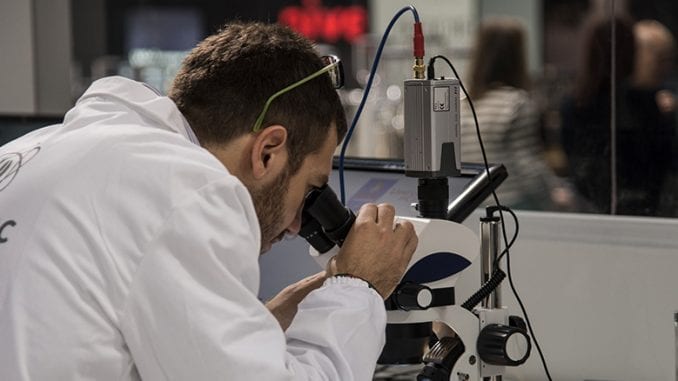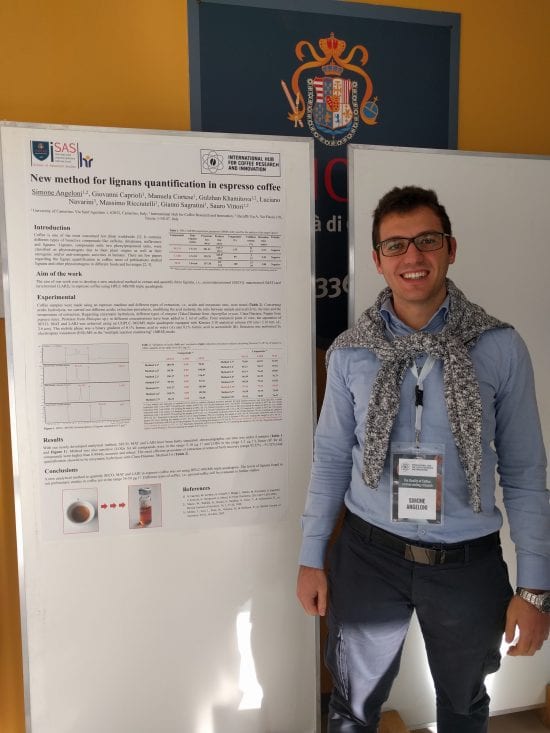
Simone Angeloni earned his Ph.D. after three years of research at the International Hub of Simonelli Group and Camerino University.
BY CHRIS RYAN
BARISTA MAGAZINE ONLINE
In 2016, Simonelli Group—manager of espresso machine brands Nuova Simonelli and Victoria Arduino—partnered with the University of Camerino in Italy to launch the International Hub for Coffee Research and Innovation, providing support in the development of scientific and technological knowledge in the coffee industry.
This month, the Hub experienced a milestone when Simone Angeloni, a researcher at the Hub for the past three years, became the first researcher there to earn a Ph.D. Simone presented his thesis, titled “Espresso Coffee preparation: an analytic study to improve the quality of the product,” to a team of professors from several Italian universities. Because of the ongoing COVID-19 pandemic, Simone presented the thesis over videoconferencing.

The successful thesis presentation was a culmination of Simone’s coffee research over the past three years, which has included studying various types of espresso extractions that can produce a high-quality drink while using less ground coffee; and researching the coffee roasting byproduct silverskin to propose its reusable characteristics in the food industry.
We talked to Simone to learn more about his interest in coffee, and how he plans to use his scientific knowledge of the product going forward.
Chris Ryan: What has been your relationship to coffee in your life? When did you get interested in it as a scientific topic?
Simone Angeloni: My relationship with coffee has been interesting because until I was 18 years old I did not like coffee so much—both Moka and espresso coffee, the two most common methods in Italy. Then, when I was approaching university studies and academic life, I started to appreciate this unique beverage, especially with my friends. At that time, I was studying Pharmacy, and I started to become interested in coffee as a scientific topic because I was studying the active constituents of medicines, supplements, etc., and coffee is an example of a drink that contains some active constituents such as bioactive compounds, molecules that present biological activities. After my graduation in Pharmacy, I wanted to continue my education in order to become a researcher. I was looking for an interesting Ph.D. program, and when I found out about a program on coffee, I decided to move my studies from Pharmacy to Food Chemistry, and specifically to the field of coffee.
Can you describe what it was like to study coffee science to obtain your Ph.D.? Why is coffee science an interesting topic to you?
My Ph.D. program has been stimulating because I approached different fields such as analytical method development, identification of different aroma compounds, and investigation of espresso coffee extraction. In that period, I attended various conferences and seminars, and thanks to Simonelli Group, I met some people involved in the coffee world. Coffee science is so fascinating because it requires different backgrounds such as chemical, biological, mathematical, physical, etc., and there are so many items to clarify and examine in depth.
Can you describe how you envision using this degree in the future, and what else in coffee you might study?
I would like to continue in [the] research world and especially in coffee. I think that I may take advantage of the experience acquired during the Ph.D. program—for example, to apply to calls for research proposals on coffee science. In my opinion there are many fields and topics which are not well investigated and clarified in coffee that I would like to explore.

